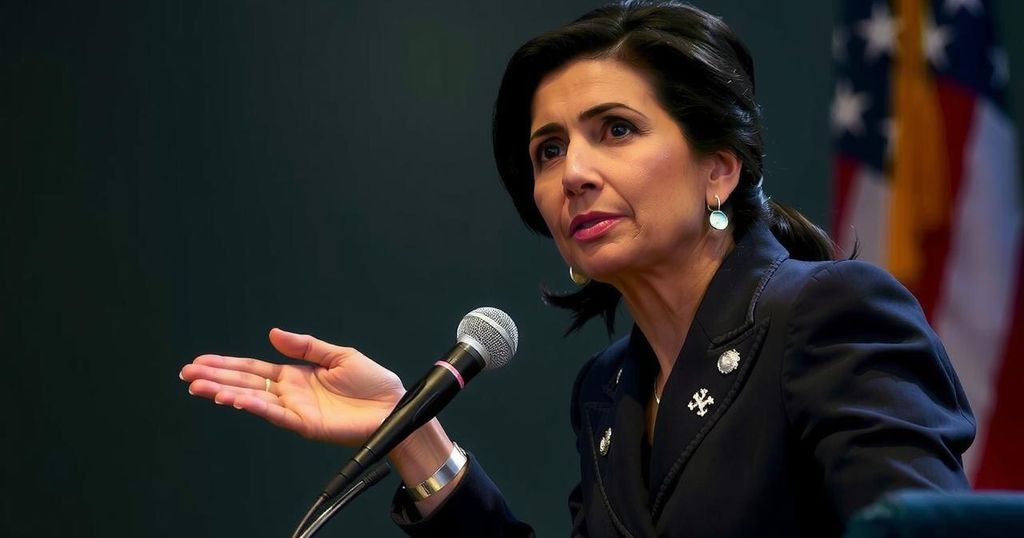Tulsi Gabbard Faces Scrutiny Following Trump’s DNI Nomination
Tulsi Gabbard’s nomination as Director of National Intelligence by President Trump is under scrutiny due to her controversial past, particularly regarding her views on Syria and Russia. While Trump defends her military background, former national security officials express concerns about potential impacts on intelligence cooperation with allies. Gabbard’s confirmation could hinge on her ability to address these critiques in the Senate, reflecting broader tensions in U.S. foreign policy.
Former Congresswoman Tulsi Gabbard is under increased scrutiny following her nomination by President-elect Donald Trump to serve as the Director of National Intelligence (DNI) amid her controversial stances on Syria and Russia. Her past meeting with Syrian President Bashar al-Assad and her statements regarding the situation in Ukraine have raised concerns amongst former national security officials and lawmakers about her perceived biases and judgment. Critics argue that Gabbard’s appointment could hinder intelligence cooperation with allies due to her anti-war views and statements seen as sympathetic to adversarial regimes.
Trump, however, has publicly defended Gabbard, emphasizing her military experience and asserting that she will bring a courageous perspective to the intelligence community. Despite this support, remarks from Russian media praising her selection have only intensified the alarm felt by many in the U.S. national security apparatus. Former officials posit that her positions on global affairs may severely impact America’s intelligence relationships, raising doubts among allies about the reliability and security of intelligence sharing during her tenure.
As her Senate confirmation process approaches, the discourse surrounding Gabbard’s nomination points to stark divisions in perceptions of her qualifications. Lawmakers from both parties express unease about her views on foreign adversaries, which could complicate the Senate’s assessment of her candidacy. Some Republican senators have voiced their support, while others remain skeptical about the implications of appointing someone with Gabbard’s controversial history in such a sensitive role, suggesting that her understanding of U.S. security interests may not align with conventional expectations. The outcome of her nomination could reflect broader tensions over American foreign policy and the direction of intelligence oversight in the coming administration.
The article discusses the nomination of Tulsi Gabbard as Director of National Intelligence (DNI), exploring the implications of her past statements and actions on U.S. foreign policy. Gabbard, a former congresswoman and lieutenant colonel in the Army Reserve, has been a staunch critic of U.S. military interventions abroad and has faced backlash for her meeting with Syrian President Bashar al-Assad during a 2017 trip to Syria. Her controversial views on Russia’s actions in Ukraine also draw attention, particularly as they align with narratives considered favorable to Russia. With her nomination, various national security officials express concerns about how her selection may impact U.S. intelligence relationships with allies.
In conclusion, Tulsi Gabbard’s nomination as Director of National Intelligence by President Trump presents a litmus test for U.S. foreign policy and intelligence gathering. Her controversial history of statements and actions regarding Syria and Russia raises significant concerns among national security experts and lawmakers about her ability to effectively engage with international allies. The Senate confirmation process will undoubtedly serve as a battleground for opposing views regarding her qualifications, potentially shaping the future of American intelligence diplomacy in a rapidly changing geopolitical landscape.
Original Source: www.bbc.com




Post Comment